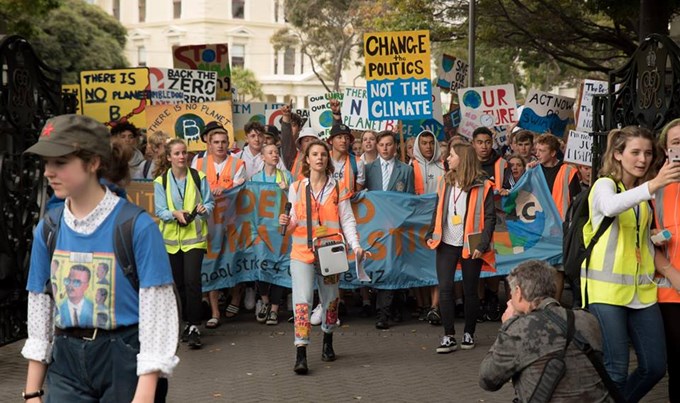Waitematā Local Board has welcomed the decision by the Environment and Community Committee to declare a climate emergency.
This follows a resolution passed by the local board last week calling on Auckland Council’s Governing Body to declare an ecological and climate emergency for the Auckland region.
Local board member Denise Roche delivered a notice of motion at the local board’s business meeting, noting concerns about the impact of an ecological and climate crisis on Auckland.
Ms Roche cited a recent Intergovernmental Panel on Climate Change (IPCC) report which indicates that a temperature increase of 1.5 degrees Celsius or more could result in unprecedented risks and weather events.
Current trends in emissions suggest we are actually facing a temperature increase of over three degrees says Ms Roche.
“The IPCC report concludes that the world must reduce emissions of greenhouse gases to net zero by the middle of this century to have a reasonable chance of limiting global warming to 1.5 degrees Celsius. Western nations will need to reach this figure more quickly,” she said.
Auckland Council’s current goal under the Low Carbon Strategic Action Plan, is to achieve a 40 per cent reduction of greenhouse gas generation by 2040.
Until recently the Government’s aim was for a 50 per cent reduction by 2050. However, the passing of the first reading in Parliament of The Climate Change Response (Zero Carbon) Bill calls for zero emissions in most areas except agricultural methane emissions by 2050.
Ms Roche says the local board support the bill in principal as a mechanism to reduce global warming to 1.5 degrees Celsius.
“However, if New Zealand is to reach the IPCC’s goal, the sooner we reach carbon neutrality, the better,” she said.
Worldwide climate action
There has been a worldwide movement to declare climate change emergencies following waves of global protests, including student strikes and mass-occupations.
Earlier this year, Wales, and the United Kingdom as a whole, declared climate and environmental emergencies. Scottish First Minister Nicola Sturgeon followed, stating her declaration was “a public promise” to act on global warming and had been inspired by young protesters who went on strike from school to urge action.
Waitematā Local Board member Adriana Avendaño Christie, who seconded Ms Roche’s motion, says we need to take immediate action on climate change and its youth who are pushing the hardest for change.
“We need real and bold climate action now. We need to do everything in our power to push for a 1.5 degrees Celsius world. Over the last year we’ve seen youth rising, calling for radical change, fast. We must listen,” she said.
Ms Roche says there has already been some progress in New Zealand with Wellington City Council currently consulting on its draft pathway to zero carbon and both Environment Canterbury and Nelson City Council recently declaring climate emergencies in their areas.
“While our local board has supported many emissions reduction actions – and in fact was the first local board to develop a Low Carbon Action Plan in 2015 – we’re calling on the Governing Body to declare a climate emergency to trigger faster action to reduce emissions and bring about zero nett emissions before 2050 to avoid catastrophic climate impacts.”
“We support public consultation on Auckland’s Climate Action Framework. The draft framework identifies 11 key moves that give us the direction we need to work towards a zero carbon, climate-resilient future. These key moves are expected to deliver identified outcomes with a range of benefits including health, cleaner air and water and stronger communities and economies. It will also help deliver on national objectives set out in the Climate Change Response (Zero Carbon) Bill.”
“We must put the climate crisis at the center of our thinking and decision making. A declaration that there is a climate crisis is the first step that will make this happen. Otherwise we risk abandoning our guiding principles of making decisions for current and the future generations,” she said.
Auckland Council’s Climate Action Framework will open for public consultation on 9 July 2019.


